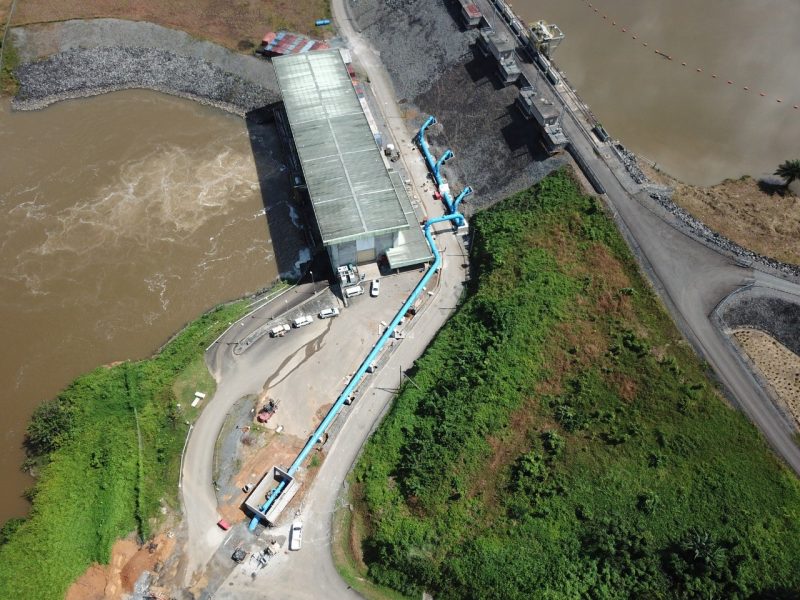
MCC’s Liberia Compact includes the construction of a raw water pipeline that will improve water quantity and quality in the capital city, Monrovia.
The main component of MCC’s $257 million Liberia Compact is an Energy Project to help Liberians access reliable and affordable electricity. Liberia has long struggled with energy poverty. At the time of compact development less than five percent of the country’s population had access to electricity, making it one of the least electrified counties in the world. The compact’s Energy Project included a $147 million rehabilitation of the Mount Coffee Hydropower Plant—the country’s single largest power source—which was successfully completed in 2018.
The White Plains water treatment plant was originally built in 1957 with funding from the United States. With the support of other development partners, it was expanded in 1970 to provide around 18 million gallons (68,100 cubic meters) of drinking water per day to people in the capital city Monrovia. However, Liberia’s devastating civil war in the 1990s destroyed the dam and pipeline leading to the treatment plant, requiring the Liberia Water and Sewer Corporation (LWSC), a state-owned water management company, to pump water to the plant directly from the St. Paul river in White Plains. Water quality suffered as a result.
The Ripple Effect of a Better Water Pipeline
Upgrades under the pipeline activity in MCC’s compact included installing a larger pipe to increase the capacity and create more consistent water supply to Monrovia’s growing population of 1.1 million people. The project also protected against salt-water intrusion, a problem that occurred during the dry season when the up-river tidal flow would make the water saline. Furthermore, the new pipeline is expected to reduce LWSC’s electricity costs by $780,000 per year as a result of replacing the old pump system with a gravity-fed system.MCC has also been supporting health initiatives within communities along the pipeline’s path. Through a contract with the Liberian Red Cross Society, communities received training on HIV/AIDS and COVID-19 awareness and prevention that included testing and counseling services at nearby health clinics. In addition, communities have had broken hand pumps replaced, eight new wells and hand pumps installed, and the training of community water management committees to oversee and maintain the new equipment—all resulting in improved water quality.
MCC’s work complements other donor efforts, including a project by the African Development Bank to improve infrastructure and staff capacity at the water treatment plant, and ongoing projects by the World Bank that are rehabilitating and extending Monrovia’s piped water system. To ensure the lasting success of pipeline operations and maintenance, MCC is planning to coordinate with these donors, further building the capacity of LWSC. MCC is also funding training, spare parts, and additional equipment for LWSC. Overall, MCC’s efforts in Liberia aim to ensure the compact’s sustainability and the country’s long-term economic growth and prosperity.

